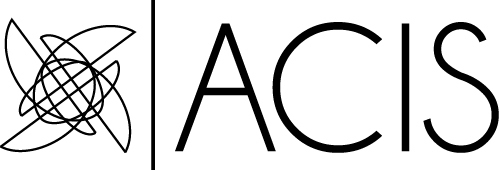
Agreeing to organize an academic conference is a special kind of scholarly neurosis, as David Lodge might have put it. Agreeing to organize such an event where the number of academic papers ventures into hundreds is downright sadistic. I obviously enjoy such self-flagellation and was especially delighted to find more than six hundred abstracts in my email inbox all waiting to be resurrected into coherent panels, which, once completed, would allow each conference presentation to come into being, brimming with the un-chartable possibilities of interdisciplinary co-mingling and collegial dialogue, or simply act as a reminder of the importance of tolerable co-existence. The joint conference of the American Conference for Irish Studies (ACIS) and the Canadian Association of Irish Studies (CAIS) was a major academic event in Ireland this year and I was delighted to be a part of the organizing committee if only because the exceptionally wide range of research areas that scholars from the USA, Canada and Europe were proposing foreshadowed rich discussions and the possibility of true interdisciplinarity.
Area Studies, of which Irish Studies really is a part, has always harbored a reckless flirtation with irrelevancy in a globalized and financialized planet, predestined to revision and re-definition, fascinated by its own deconstructed image (unlike, let’s say, the more sobering field of literary criticism). However, ACIS-CAIS 2014 displayed intriguing narrative threads that seemed to angularly address issues that determine the cultural, political and existential contours of the early 21st century. Presentation proposals on, for example, the centrality of the Irish railway network for the expansion of empire, or the significance of the river Shannon in wartime Europe, or the innovative lens of biopolitical modernity to read through Irish literature stood independently of each other. However, these different presentations, it seemed to me, also signaled an urgent need of cross-referentiality and dialogue among them, a palimpsestic layering made possible in an interdisciplinary panel. Such frameworks highlight the complex network of issues that constitutes an environmentally focused analytic lens.
While Irish Studies arrived belatedly to "ecocriticism," it is interesting to see how that term has often been used to read cultural and literary narratives within contexts quite similar to those central to criticisms of nature writing or of place/topography/landscape that were attempted in previous decades. So, for example, the ecocritical turn in Irish Studies might suggest that cultural and social significance of the dissolution of Big Houses should be updated by focusing on more contemporary issues (such as the ghosts estates of post-boom Ireland). Such maneuvers are commendable and urgently necessary but they also point toward an unwitting depoliticization of a term like ecocriticism. How exactly is such ecocriticism different from analyses of place or space and their imbrication within economic and political orders already highlighted in previous decades? Indeed, do such analyses confront the radical transformation of economic and political orders within contemporary globalization and neoliberal capital, a transformation that determines the longevity of our planet? Ecocriticism, as a term, is already prone to evoke images of universal and personal harmony with "nature," images more suitable to the counter culture of the 1960s than to a quickly warming planet plagued by rising sea levels, widespread deforestation, escalating hunger, and a future where futurity itself is under doubt. Irish Studies, at least the way I see it, is liable to update the rich literary traditions of nature writing in the “scraggy isthmus of Europe Minor” within a vocabulary that is uncertain of confronting such contemporary realities rather than aimed to provoke a language that tries to re-shape bleak futures.
The interventionist angles of some the presentations I mentioned (and many I did not) gained in perspective when arranged together, creating panels with speakers who might never have spoken to each other about their individual academic work. Thus, three panels on ecology came into being where historians, geographers, literary critics and sociologists found themselves around the same table. It may not have been the first time something like this was designed in Irish Studies conferences but it was certainly one of the first attempts under the rubrics of ecology, ecocriticism, or what the emergent discipline is now more correctly called “the environmental humanities.” The possibility of such panels is the great adventure and the subversive energy offered by mega conferences. This is the reason why, despite the numerous criticisms challenging such gatherings (academic conferences may seem to many like medieval pilgrimages), they remain important and play pivotal roles in shaping the future and future role of a discipline.
